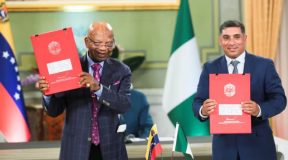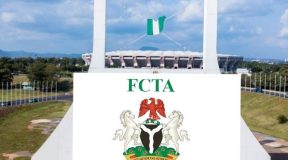The Chairman of the Presidential Fiscal Policy and Tax Reforms Committee, Taiwo Oyedele, has disclosed that MTN Nigeria contributes over N200 billion in Value Added Tax monthly, making it the largest contributor to the nation’s VAT pool.
Oyedele made the disclosure recently while speaking as a panellist during Channels Television’s Town Hall on Tax Reforms.
He used the platform to highlight disparities in the current VAT distribution system and explained the reforms aimed at addressing them.
According to the tax expert, the current system allocates all VAT paid by the country’s biggest telco to Lagos State, where the company’s headquarters is located, even though the services that generate this revenue are consumed nationwide.
“MTN is the largest contributor to VAT in Nigeria. So they, in fact, pay VAT of over N200bn every month; the gap between them and number two is huge.”
He added, “Today, all the VAT paid by MTN is credited and attributed to Lagos State, even as calls are made in Kano, the FCT, Ekiti, Edo, or Kebbi.”
Part of the reform bill proposes adjustments to ensure a more equitable distribution of VAT revenues across states based on actual consumption rather than the location of corporate headquarters.
To demonstrate the implications of the proposed reforms, Oyedele provided a hypothetical redistribution model of MTN’s VAT contributions.
He illustrated how the reforms would allocate the VAT revenue based on consumption rather than the location of the company’s headquarters.
Under this new framework, Lagos State, which currently retains the full N200bn, would see its share reduced to approximately 20 per cent, while other states across the federation would benefit from a fairer distribution.
“This adjustment ensures that states where the VAT is generated get their fair share,” Oyedele said.
“When you analyse the data, you see Lagos State’s share reduces slightly, but every other state gains.”
The tax reform bill, which aims to address longstanding issues in Nigeria’s fiscal policies, includes provisions for revenue redistribution, addressing inefficiencies, and promoting fairness in the tax system.
The reform proposal has sparked debates recently, with some critics accusing the committee of pushing policies that could adversely affect some parties.
Oyedele dismissed these claims, emphasising that the current system is flawed and unfair. “If you’re doing the wrong thing, how can Lagos State disagree with us when we propose to fix it?” he argued.




